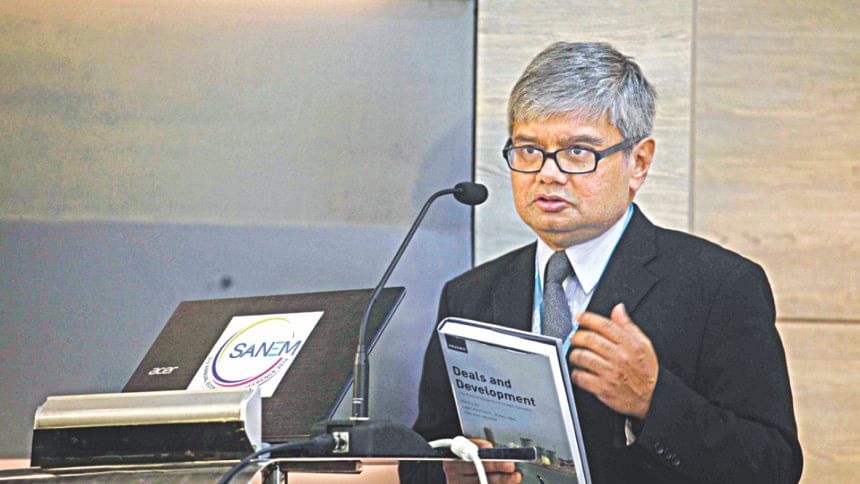Inequality widens as efforts fizzle out: economist

Inequality is rising and will continue to mount in the coming days in absence of dialogue and social and political pressure aimed at curbing disparity, said a noted economist yesterday.
KAS Murshid, director-general of the Bangladesh Institute of Development Studies (BIDS), said, “Only a handful of economists and politicians talk about inequality.”
“Apart from them, there is no discussion on inequality,” he said while presenting a keynote on inequality at the inaugural of the 3rd SANEM Annual Economists Conference 2018 at the Brac Centre Inn in the capital.

Murshid said it appears that inequality has been accepted as a natural law. “There is also no discussion on how much inequality is tolerable or acceptable. There is no demand, no activism.”
He suggested targeting health, education, public service, and nutrition in order to reduce disparity.
The South Asian Network on Economic Modeling (SANEM), a think-tank, has organised the event.
On the Sustainable Development Goals (SDGs), Murshid said the process of attaining the goal is important instead of the outcome.
“The SDGs will not be automatically achieved. There is a process behind it. And whatever the outcome, it would be very difficult to accept if processes are not fair.”
Kunal Sen, a professor at the Global Development Institute of the University of Manchester, presented a keynote on “Leaving No One Behind in South Asia: What can states do?”
He recommended prioritising goals such as eradicating extreme poverty and ensuring decent jobs among the 17 SDGs.
He said it is very difficult to attain everything at a time. “So, prioritising will be helpful in achieving some of the goals so that we don't find that we have wasted our time.”
Wasting time can't be an excuse, especially for countries in South Asia where many people suffer from poverty. “For them, SDGs agenda is very important,” said Sen.
South Asia is home to two-thirds of the world's poor and countries in South Asia, including Bangladesh suffer from high levels of deprivation.
“Development in the region will not take place and remain poor if the region fails to attain SDGs,” Sen said, suggesting countries to boost spending on health and education.
South Asia also suffers from the problem of state inefficiencies, according to Sen.
To improve effectiveness, he said, “Start smart, find pockets of effectiveness, nurture them, and use them as examples for others to follow. Find champions of reforms among bureaucrats.”
SANEM Chairman Prof Bazlul Haque Khondker and Executive Director Selim Raihan spoke.

 For all latest news, follow The Daily Star's Google News channel.
For all latest news, follow The Daily Star's Google News channel. 



Comments